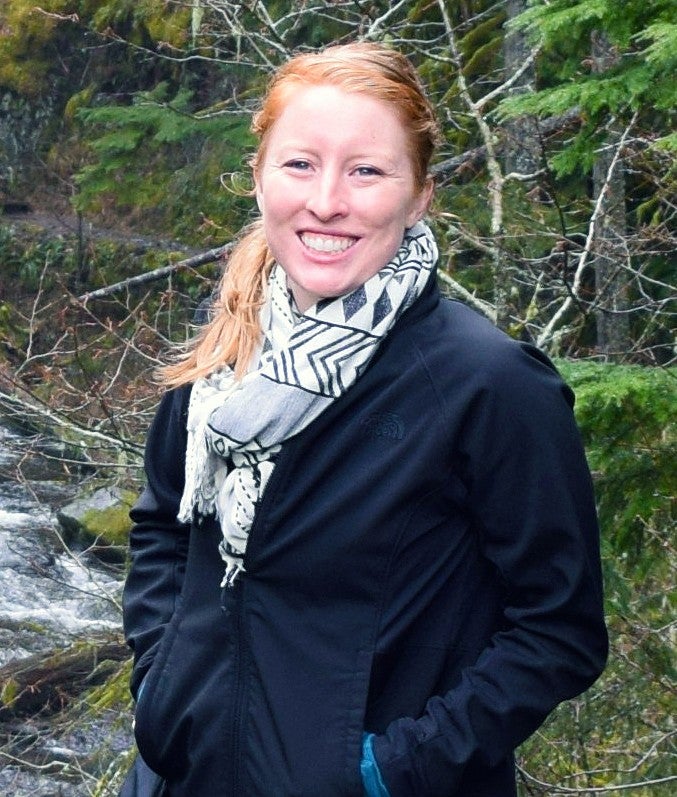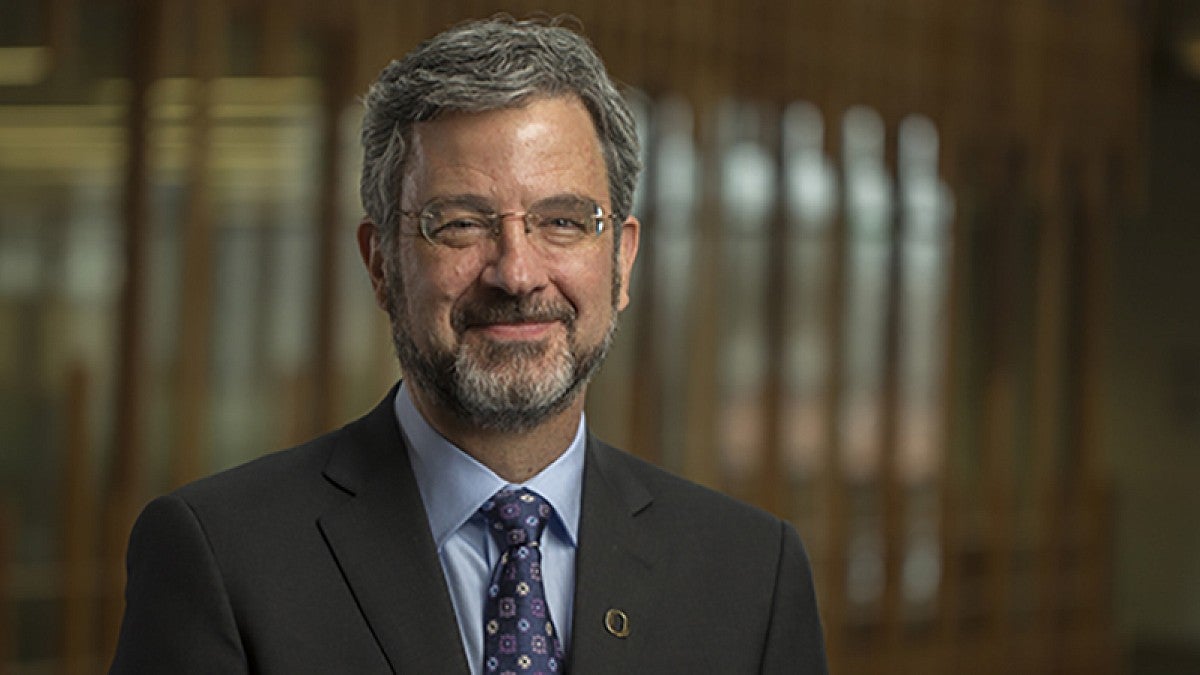The Phil and Penny Knight Campus for Accelerating Scientific Impact is moving from conceptual planning into virtual reality — a design phase that will allow planners to stroll through building spaces before they are built.
That is the message in a recent update to the UO community from Patrick Phillips, acting executive director of the Knight Campus.

Michelle Sconce, a doctoral student in biology, testified with Patrick Phillips in support of the Knight Campus
“We have just completed our conceptual design phase, which means we have a good idea of how the building will fit on our available site, as well as general agreement on the activities that will be able to be accommodated within these research-intensive buildings,” Phillips wrote.
The update follows last week’s announcement that the UO has closed on a primary property that all but clears the way for phase one of the $1 billion project, which began last fall with a $500 million gift from the Knights. The first phase of construction calls for two buildings, which are slated to open in the first half 2020.
In the last three months, Phillips noted, multiple meetings have been held among those involved in the project and with architects, designers and stakeholders. Those meetings have included discussions “ranging from sustainable building practices, loading docks and alternative transportation needs to core research facilities and innovation spaces,” he said.
Next up in the building timeline is turning ideas into a schematic design using drawings and 3-D renderings. “We will even have the opportunity to deploy virtual reality technology to immersively visualize and ‘walk through’ the spaces that we are designing,” Phillips wrote.
“The design process has been an amazing experience thus far, and I am very excited about how closely our dreams match the available reality at this stage of our planning,” he said.
Phillips highlighted efforts to partner with the state for $100 million in bonding authority. He also noted recent trips to Salem with faculty members and students — such as biology graduate student Michelle Sconce — to attend meetings and testify to House and Senate committees.
“We have received a universally warm and supportive reception in Salem, with nearly everyone recognizing that this is a once-in-a-generation opportunity for the university and state,” Phillips wrote.
Some 30 organizations, including unions, tribal governments, private companies and professional organizations, have signed a letter of support addressed to the legislature. A separate letter contains signatures of more than 70 faculty members from other research Oregon universities.
Read the message in its entirety.


